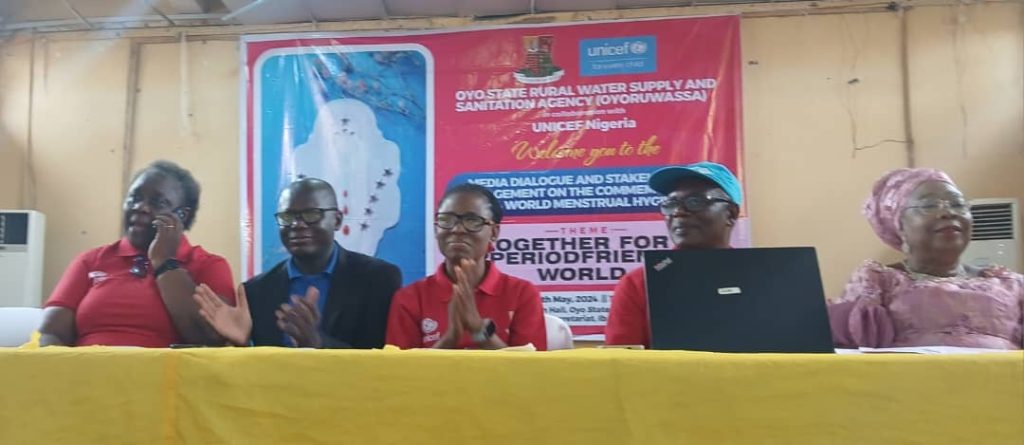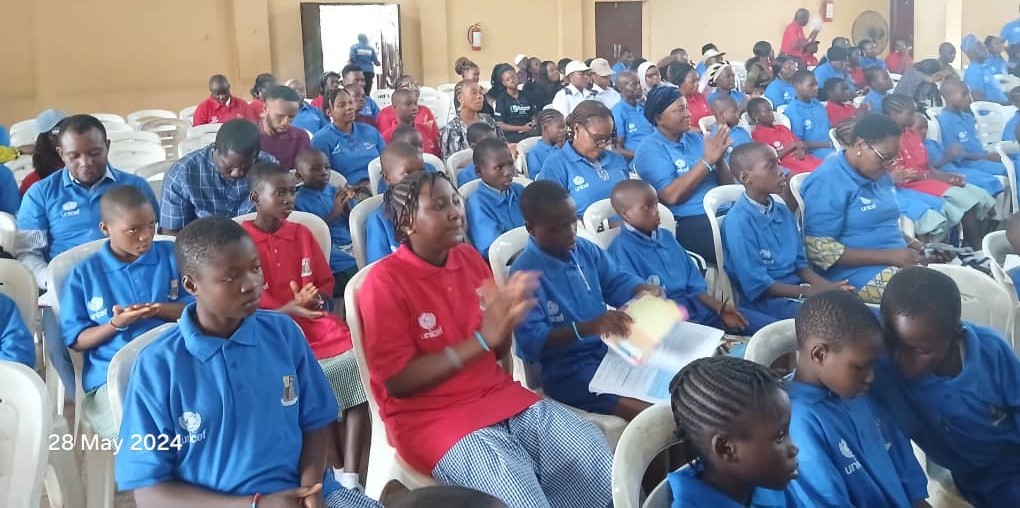
As Oyo government join the rest of the world to commemorates Menstrual Hygiene Day, Health expert advocate for end of stigmatization of girls and emphasize the profound impact that cultural taboos and misinformation have on their lives.
Speaking at this year event which was organized by the Oyo State Rural Water Supply and Sanitation Agency (OYORUWASSA) in collaboration with UNICEF to mark the 10th edition of Menstrual Hygiene Day.
The commissioner for Health, Dr. Oluwasherimi Ajetumobi highlighted this year’s theme, “Period Friendly World,” which aligns with the Oyo state government’s vision of a world where everyone can manage their menstruation with dignity, confidence, and safety.
She said, “A period-friendly world is one where everyone has access to the menstrual products, education, and infrastructure they need. Menstrual Health and Hygiene (MHH) is a fundamental aspect of health.”

According to her, “On any given day, more than 300 million women are menstruating worldwide, and an estimated 500 million lack access to menstrual products and adequate facilities for menstrual hygiene management (MHM).
The lack of proper menstrual hygiene facilities and cultural taboos contribute to poor menstrual health. Stigmatization, misinformation, and inadequate resources continue to undermine the ability of many to manage their menstruation healthily and respectfully.”
The Commissioner, emphasized the issue of poor access to sanitary products and the resulting ‘period poverty’ among girls.

Dr. Ajetunmobi called on stakeholders to promote better understanding of menstruation, dispel myths and misconceptions, and adopt a more inclusive approach to gender health. She added
In his welcome address the Chairman of OYORUWASSA, Alhaji Babalola Afobaje, noted that 2024 marks the 10th edition of Menstrual Hygiene Day (MHD) and many young girls in the country lack access to sanitary pads, which are essential for optimal health.
He stated that the Oyo state government recognizes this as an urgent issue requiring intervention and appreciate UNICEF, Market Women and the Traditional Rulers for their efforts in dispel myths and misconceptions about menstruation. He concluded.
UNICEF Wash Specialist, Mr. Johnson Monday, noted that Menstrual Hygiene Day is observed annually on May 28.
According to him, “the date May 28, was chosen because it represents the average length of a menstrual cycle.
The day is dedicated to promoting better understanding of menstruation, raising awareness about the importance of good menstrual hygiene, and breaking down social taboos associated with menstruation”.
“It is also a day to celebrate the beauty and dignity of menstruation and to promote a more inclusive and gender-affirming approach to sexual health and reproduction,” He concluded.
The Director of Nursing Services at the Ministry of Health, Mrs. Omokehinde Oyebode, expressed concern over the ongoing issues.
“Young girls still in school often lack confidence when they do not have access to pads. Some of them even avoid school because they do not have sanitary pads,” Mrs. Oyebode said.
She provided guidance to the female students in attendance on how to manage the challenges associated with menstruation.
